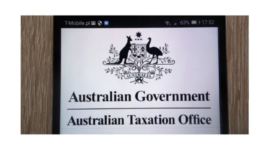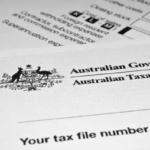The ATO’s New Game is to Name and Shame, But Perhaps It Should Look at Itself First

It’s no secret that during Scott Morrison’s time in the nation’s top job, the Federal Government invested a lot of money into the Australian Tax Office, ostensibly to crack down on those who engage in tax fraud and tax evasion offences, and especially on the so-called “cash economy”.
But the public is also acutely aware the millions invested into enforcement resources also resulted in blatant and systemic unlawful activity, including the illegal Robodebt extortion scheme which severely impacted on many of our most vulnerable, and fostered a culture within the ATO that not only ignored crime and misconduct, but persecuted those who exposed it.
Indeed, those who have exposed the illegal practises of the organisation have been vilified, and criminally prosecuted, while those responsible for illegal and potentially criminal conduct are yet to face the consequences.
Do as I say, not as I do
If you look over the media headlines of the past few years, the ATO has issued a number of public warnings against engaging in unlawful conduct when it comes to tax affairs, ensuring its public relations spin doctors proliferate information about the virtues of the department and vilify those it suspects of wrongdoing.
The ATO has indeed been vested broad-ranging and ever-expanding legal powers to obtain private information from government agencies, to garnish money from bank accounts of those will less-serious suspected infractions and direct prosecutions against more serious alleged offending.
Name and shame
The Office’s latest strategy, though, is to name and shame businesses, many of them still struggling from the impact of COVID, who have not paid – and often not been in a position to pay – their outstanding tax bills.
In recent weeks, the ATO has issued 22,000 businesses with notices warning they face being disclosed to credit reporting agencies for tax debts of at least $100,000 that are overdue by more than 90 days.
To put this in perspective, the majority of Australian businesses are small businesses – family-owned businesses, entrepreneurs, start-ups and sole traders. In fact, 97.3% of all businesses in Australia (or around 2.5 million) are small businesses with 0-19 employees.
These businesses typically don’t operate with the kinds of complex structures that allow multi-national corporations to pay minimal tax, legally, while continuing to make hefty profits.
It’s also important to remember that right now, the economy is in an economic slow-down post-Covid. Despite rising living costs, a lot of people – and small businesses – are doing it tough.
What about confidentiality?
A disclosed debt, such as the one being threatened by the ATO can impact a business’s ability to receive finance and cause it to lose suppliers, and damage its reputation, but despite this, according to reports. More than 9000 businesses are expected to have their debts disclosed this month alone. The ATO’s disclosure policy is clearly outlined on its website.
According to the ATO, impacted businesses wanting to avoid their debts being listed in credit rating checks must pay or engage with the tax office within 28 days of the intent to disclose notice being issued.
The ATO also stated that: “While we do not take disclosures lightly, consequences will apply to businesses who refuse to pay or engage with us.”
While the ATO is defending the move so that it “protects the Australian community and other creditors”, it’s still an undeniably harsh move. That’s not to say that those doing the wrong thing shouldn’t be held to account, but such a blanket move – affecting thousands – should also highlight some cause for concern.
‘One-size’ doesn’t always fit all
Because this is not the first time a large organisation has applied a one-size-fits-all approach – and as we’ve seen from past failures, it rarely works. Many Autralians are simply tired of the attitude of government-led organisations that they’ll just move bullishly ahead, and apologise if and when any consequences surface later.
If we learned anything from Robodebt it’s that people need to be treated as people, and individual circumstances need to be taken into account – automated systems might save time and administration costs, but they can also cause a lot of damage.
And, as in the case of Robodebt, the system that was supposed to save taxpayers millions, ended up costing us much much more – because you can’t put a price on human life, or the ripple effects it has had in terms of people seeking compensation and justice.
And there’s also the prosecution of Richard Boyle
In the meantime, the Federal Government continues to move forward with its prosecution of ATO whistleblower Richard Boyle, who will be facing court in South Australia this month on more than 20 charges for waving red flags about the ATO’s relentless debt collection processes.
He faces more than 40 years in prison for the concerns he raised, initially internally within the ATO, which was unsuccessful, and which led to him taking them public on ABC programme Four Corners,
He spoke publicly of a culture at the ATO which included his team being instructed to use more heavy-handed tactics on taxpayers who owed the tax office money – tactics which were allegedly unlawful.
His actions brought the practises to an end, however, shortly after appearing on television, in 2018, his home was raided, and subsequently he was charged with numerous offences including taping private conversations without consent and taking photos of taxpayer information.
Earlier this year, judge Liesl Kudelka found his actions were not immune to prosecution under the Public Interest Disclosure (PID) Act. He now faces a very uncertain future.
Many have argued that his prosecution is not in the public interest, but in Australia we have a habit of persecuting people who stand up for wrongdoing.
The Boyle case has been a critical test of the law and its ability to protect whistleblowers – and it appears to be quite broken. This presents a significant problem for the whole of Australia.
In August, The Human Rights Law Centre (HRLC) released a report which had scrutinized 78 court rulings in 70 separate cases in which whistleblowers sought protection under federal and state whistleblowing regimes.
As the report showed, Australia’s federal whistleblowing laws have not successfully protected a single person since their inception, under different federal laws designed to protect public or private sector employees who speak out about wrongdoing.







